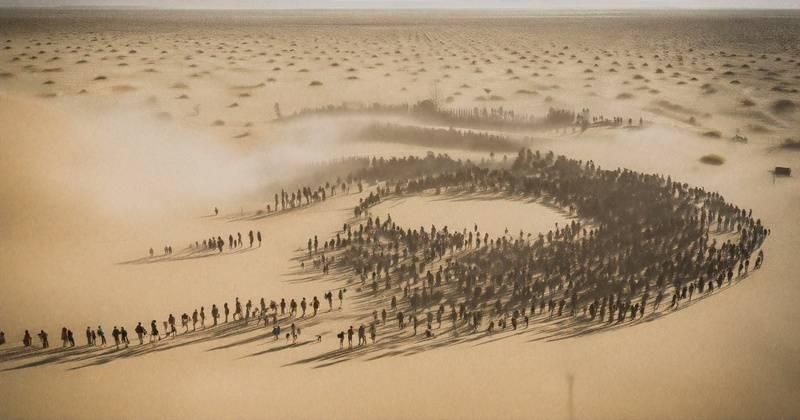Khadijah bint Khuwaylid was among the noblest women of Quraysh. She possessed remarkable wisdom, refinement, and purity of character. Even before the advent of Islam, she was known by the honorable title al-Tahirah—“the pure, the virtuous.” Intelligent and generous, she was also a woman of considerable wealth. She expanded her fortune through trade but, being a woman, could not personally travel with the caravans. Instead, she would form partnerships with men whose honesty and business acumen she trusted: she provided the capital, and they managed the trade, sharing the profit according to prior agreement.
In Makkah, trade was largely conducted through caravans. These caravans would transport locally produced leather goods—especially items made from camel hide—along with merchandise brought from Yemen, selling them in Syria and the Byzantine territories. In turn, they would purchase goods there to sell along their route, in Makkah, or to other caravans bound for Yaman. When the journey ended, profits and losses were calculated and divided among the partners.
Commerce requires a special set of skills, and partnership in trade demands not only ability but also trust and integrity—especially when one entrusts the entirety of one’s wealth to another’s hands.
At that time, Khadijah [radiyallahu anha] had heard of a young man, twenty-five years of age, named Muhammad (sallallahu alayhi wa sallam). She was told of his honesty, gentle conduct, kindness, eloquence, generosity, and simplicity of means.
These were the very qualities she sought in a business partner. Yet what struck her most was the sincerity with which people spoke of him. Every person who mentioned one of his virtues seemed eager to tell of another, as though no single praise could suffice.
She had heard these things from people she knew well—people of integrity, seasoned in trade, whose judgment she trusted. Impressed by the young man’s reputation for character more valuable than wealth itself, she decided to enter into partnership with him and entrusted her goods to his care.
She sent her servant Maysarah along with Muhammad (sallallahu alayhi wa sallam) on the caravan journey to assist him. Yet her purpose was not merely to provide help; she wanted Maysarah to observe him closely and report back. Perhaps this partnership might free her from ever again having to search for a trustworthy associate, and perhaps it might establish a long-term alliance with Muhammad (sallallahu alayhi wa sallam).
Whether deeper thoughts stirred in her heart we cannot say, but her words to Maysarah suggest as much. Many of the leading men of Quraysh—drawn to her nobility, beauty, virtue, wealth, and integrity—had sought her hand in marriage, yet she had declined them all. Now in her forties, she desired a life of stability and purpose.
The young Muhammad (sallallahu alayhi wa sallam) returned from this trade expedition with remarkable success. He profited both in purchase and in sale, conducted his dealings with grace and fairness, never quarreled, never hurt a soul. He was kind to his companions, helped them readily, and earned their affection and loyalty. He was intelligent, diligent, humble, honest, cheerful, and soft-spoken—what more could one ask of a man?
Maysarah was overjoyed to have taken part in that journey. He had come to know a man of rare character and learned much from his example. For him, it was the most rewarding journey of his life. When they returned, he recounted to Khadijah everything he had witnessed—his admiration overflowing. He spoke of Muhammad’s nobility, moral excellence, and brilliance in trade. In a word, he was the perfect man.
In those days, marriage proposals were usually made by men to women—but this time it was different. The proposal came from our mother Khadijah to the Messenger of Allah (sallallahu alayhi wa sallam). She was an intelligent woman and found a discreet way to convey her wish to him.
Still, as custom required, the Prophet’s brave uncle Hamzah approached Khadijah’s family to ask for her hand on behalf of his nephew. The proposal was accepted at once. At the wedding, Abu Talib spoke on behalf of the groom’s family, while Khadijah’s cousin, Waraqah ibn Nawfal, represented the bride’s side. Both delivered eloquent speeches, and a delightful banquet brought together family and friends. The marriage was thus blessed, and a home was founded that would be remembered forever.
After the wedding, the Prophet (sallallahu alayhi wa sallam) moved from his uncle Abu Talib’s house into the home of Khadijah. That house would later become the site of divine revelation, overflowing with grace, sacrifice, and everlasting loyalty.
Our mother Khadijah bore the Prophet Muhammad (sallallahu alayhi wa sallam) two sons and four daughters. The first of his sons was named Qasim, and for this reason, the Prophet was given the title Abu al-Qasim. His other son was named Abdullah, who passed away not long after birth.
His daughters were Zaynab, Ruqayyah, Umm Kulthum, and Fatimah. All of them embraced Islam and migrated to Madinah. Except for Fatimah (radiyallahu anha), all of his daughters passed away before the Prophet (sallallahu alayhi wa sallam). Fatimah, however, passed away six months after his blessed departure.
***


